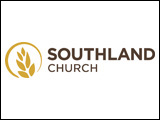PigTrace Canada is confident a national swine traceability system being developed in Canada will be compatible with a new system being proposed by the U.S. Department of Agriculture.
Last month the U.S. Department of Agriculture issued a proposed rule to establish general regulations for improving the traceability of U.S. livestock moving interstate when animal disease events take place.
Under the proposed rule, unless specifically exempted, livestock moved interstate would have to be officially identified and accompanied by an interstate certificate of veterinary inspection or other documentation, such as owner-shipper statements or brand certificates.
Jeff Clark, the manager of PigTrace Canada, an initiative of the Canadian Pork Council, says although the system proposed in U.S. differs substantially from the one being developed in Canada he is confident the two can be coordinated.
The way that they’ve designed their program is to essentially treat each state as an international boundary so movements need to be reported to state officials when they cross state borders so it’s a very different type of system than what’s being proposed in Canada although I’m very optimistic that our Canadian system can align with the U.S. system with no problem.
My observation is that what we’re proposing to do in Canada is much more detailed, would require less human resource effort to do a traceback should something happen.
The U.S. has much more population than we do.
They have more animal health officials to actually do a traceback, be on site, make phone calls, all those kind of things.
We don’t have that luxury in Canada.
We’re putting a little bit more of our emphasis on technology and the reporting of movements as they happen.
But just to clarify, again, the U.S. system is based on reporting movements as they cross state borders where as in Canada we’re requiring movements be reported any time they move from one site to the next.
The proposed U.S. rule was issued August 9, 2011 and the U.S. Department of Agriculture will be accepting public comments until November 9, 2011.
Source: Farmscape.Ca



